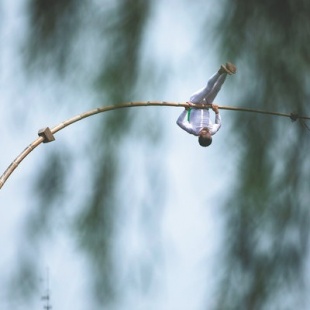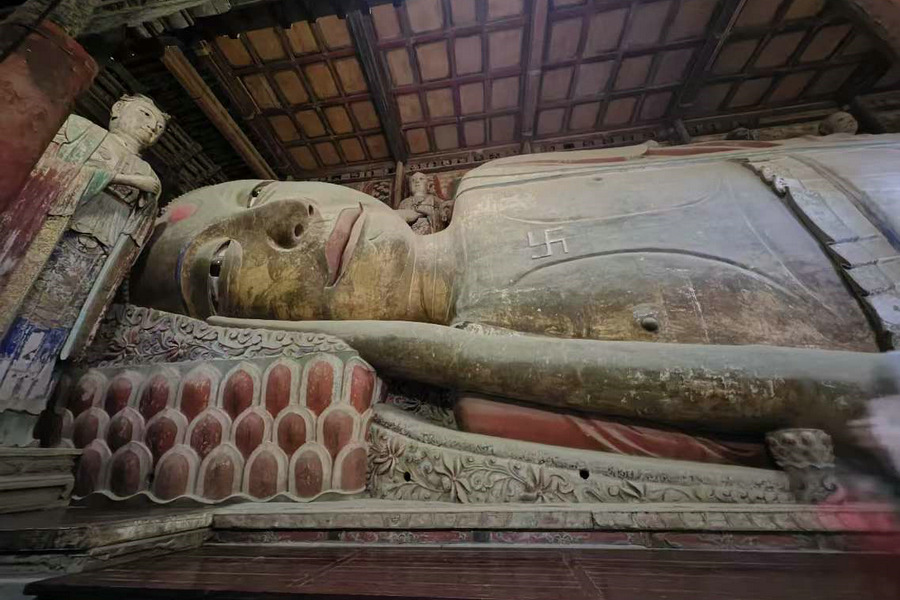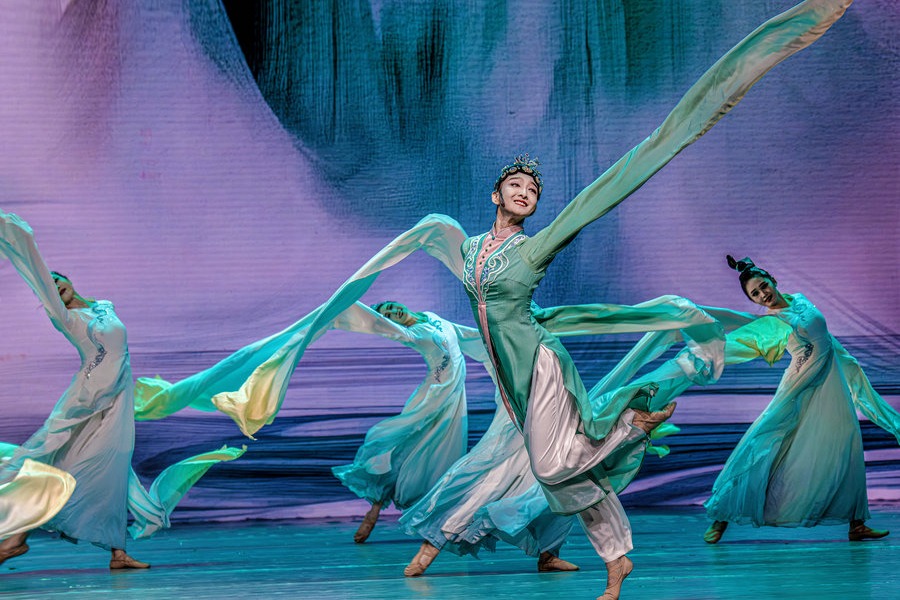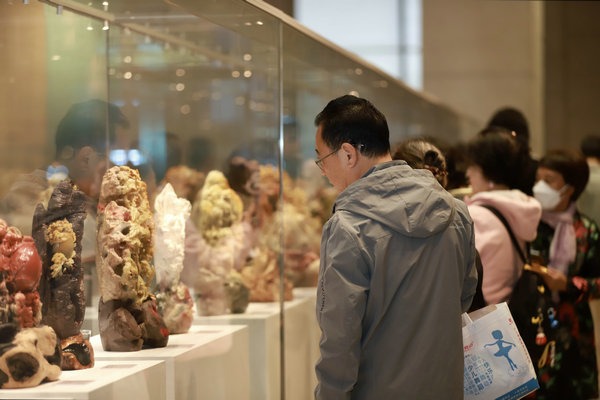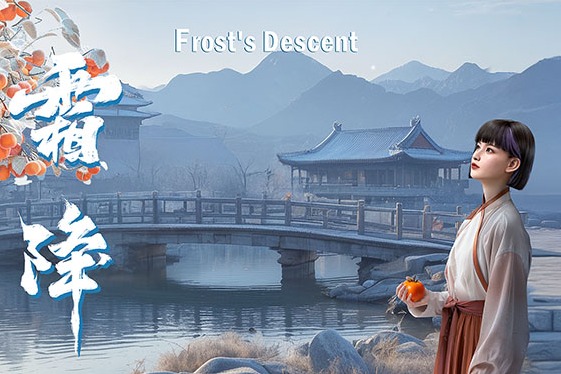Pole position for culture


Tu Songgen recently took his audience's breath away at a historical folk celebration event in his hometown of Zhouquan in Tongxiang, a county-level city of Jiaxing, East China's Zhejiang province.
Dressed in a white folk costume, Tu pulled off various stunts on top of a bamboo pole easily more than 10 meters high in a boat on the river.
He climbed to the top of the pole, one end of which was fastened to the boat — the other end reaching into the sky — before he started to spin and twist his lithe body around it.
Seen from afar, Tu looked as if strolling through the clouds. At times, he released his hands, lying on his back over the top of the pole. Then, he gave the audience a start by suddenly hooking his feet onto the end of it and hanging himself upside down.
His movements carried not just entertainment value, but a symbolic meaning — for example his embracing the bamboo pole with both arms imitated silkworms eating mulberry leaves and spinning silk.
With every new move, visitors cried out in amazement, and applause broke out at close intervals, creating an atmosphere of excitement during the Silkworm Flower Water Festival staged in the town's Qinghe village in early April.
The festival gets its name from the practice of female silkworm farmers adorning themselves with colorful flowers made of silk. Harvest offerings are also made as part of the celebrations.
Widely recognized for its waterborne acrobatics, the boat show is also closely related to local silkworm culture and is a highlight of the annual festival, which has a history of more than 800 years.
Since ancient times, the water festival has been a popular cultural and sports activity in the Jiaxing region, which is renowned for silkworm farming. The silkworm farmers in Zhouquan would spontaneously organize these folk festivities to worship the silkworm goddess and pray for a good harvest during the Qingming Festival, also called Tomb Sweeping Day, in early April, every year.
"Tumbling on the bamboo pole is not only a show of skills but also a prayer for a bountiful life," Tu says.


